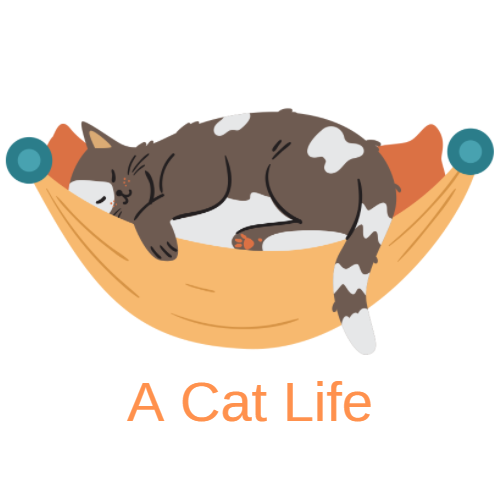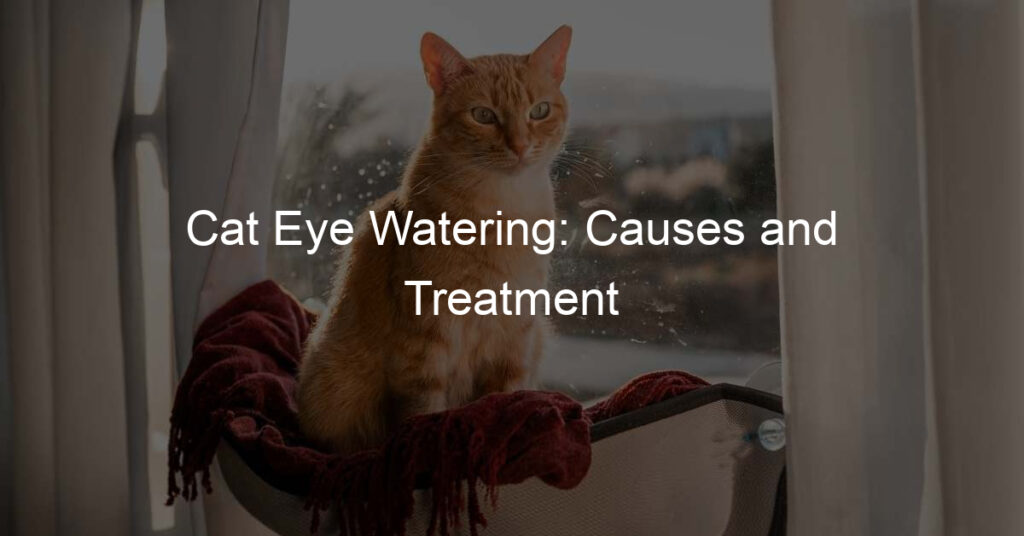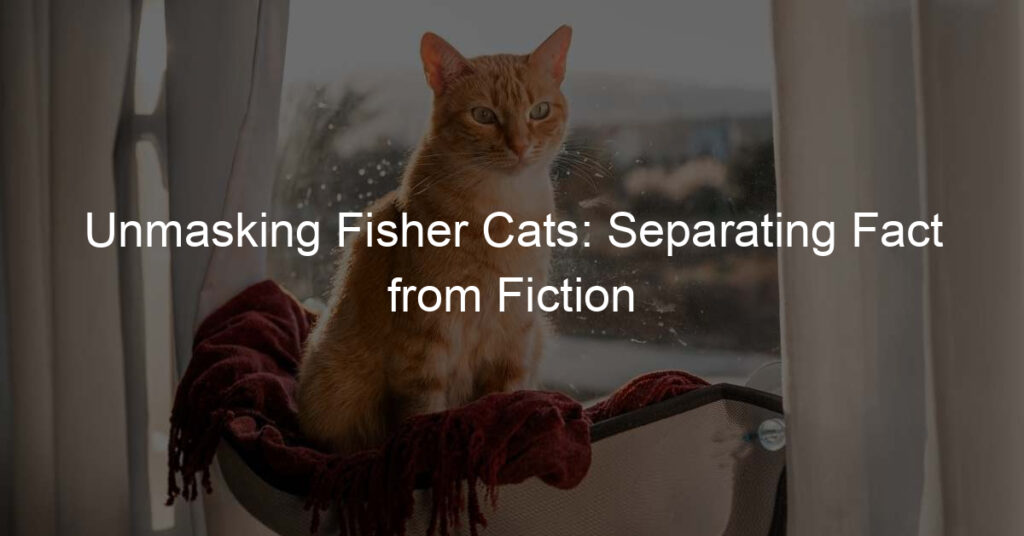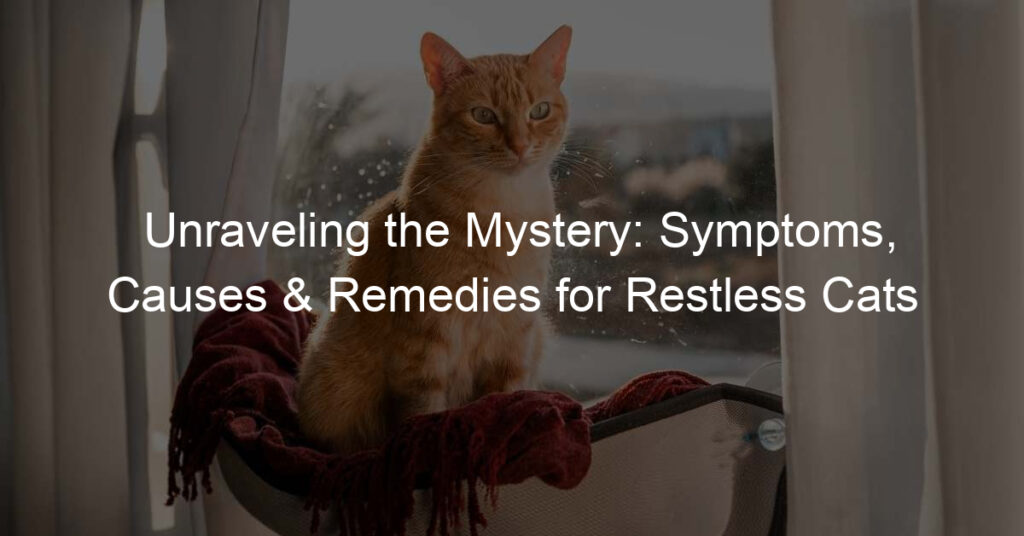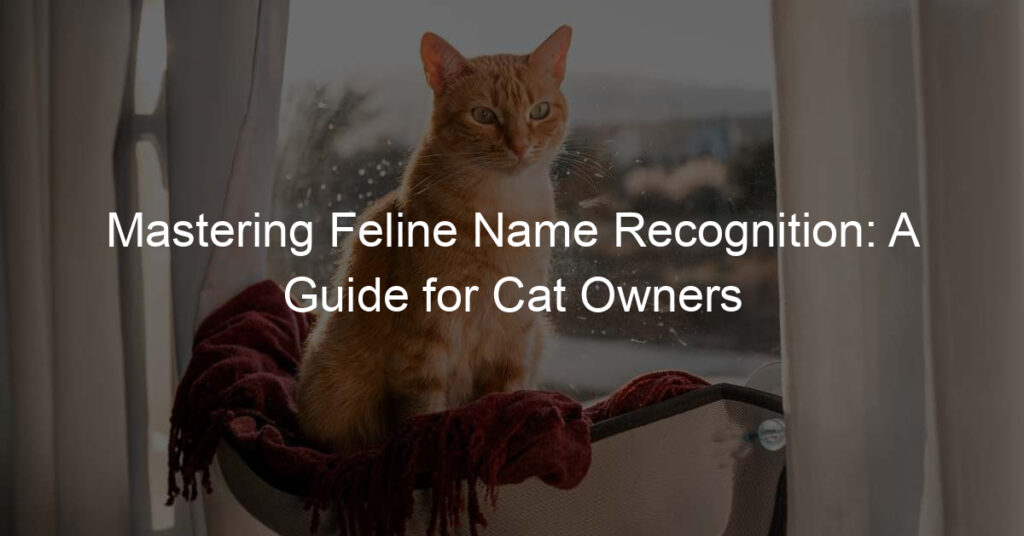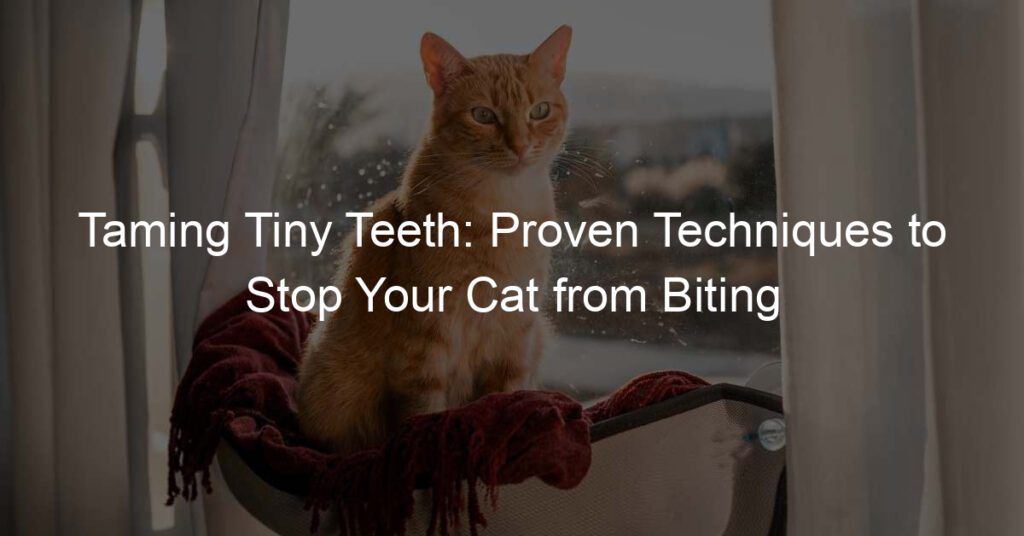If you’ve ever had a cat eye that watered excessively, you know how uncomfortable it can be. Watery eyes can be caused by several things, including allergies, infection, and injury. Fortunately, there are several treatments available to help relieve your cat’s symptoms and get its eyes back to normal. In this blog post, we’ll explore the causes of watery eyes in cats and some treatment options to consider.
How do you treat a cat’s watery eye?
Treating a cat’s watery eye can be done safely and easily at home. The best place to start is by assessing the situation and seeing if the cat’s eyes appear red, cloudy, or swollen. If so, it’s best to take the cat to a veterinarian for evaluation as soon as possible.
For minor cases of watery eyes, routine cleaning can usually help flush out any foreign objects or allergens that may be causing your cat discomfort. Cleaning involves using warm water and a soft cloth/ cotton ball soaked in saline solution to gently wipe away any dirt from the eyes. Once suspected irritants are removed, applying an ointment recommended by your vet can further reduce inflammation and dryness.
However, be sure not to use human drops as cats’ eye anatomy differs drastically from humans’ and certain ingredients could lead to even worse irritation. Remember also that treating symptoms is only half the battle; seeking professional advice may be necessary for discovering the underlying causes of watery eyes in your kitty friend.
Why does my cat’s one eye keep watering?
It can be concerning for pet parents when they notice their cat’s eye is watery or weepy. Such a symptom can point to a range of possible causes, from allergies to infections or even an injury. Herbal remedies may help in calming inflammation and soothing tissue.
Veterinarians may diagnose the cause, recommend specific treatments, and monitor healing progress. They believe early intervention, combined with natural treatments, may give cats relief from all kinds of ocular problems that impact vision, comfort, and quality of life.
What is the best medicine for cat eye infection?
The best medicine for a cat eye infection truly depends on the cause of the infection. If the eye infection is caused by bacteria, antibiotics are usually recommended.
Antibiotics come in both topical and oral forms, so speak to your veterinarian about which option is best for your pet. If an allergic reaction to dust or pollen is causing the infection, anti-inflammatories may be prescribed.
Likewise, if there are parasites like mites or fleas present and causing the issue, anti-parasitic medication will be necessary. Regardless of which medication is needed, you must follow your veterinarian’s instructions exactly to ensure effective treatment.
How long do cat eye infections last?
Cat eye infections can be uncomfortable and irritating for our feline friends, leaving them squinting, pawing at their eyes, and generally feeling miserable. Thankfully, most cat eye infections will respond well to treatment and clear up in a matter of a few days or weeks.
However, it is important to recognize that if the infection takes too long to resolve, there may be an underlying issue present that is causing more serious symptoms. If your pet has experienced symptoms longer than a couple of weeks, medical attention should be sought from your veterinarian so that a proper diagnosis can be made and the necessary steps taken for recovery.
Should I be worried if my cat’s eye is watering?
If your cat’s eye is watering, it could be a sign of an underlying medical issue. Watery eyes can indicate allergies, infections, or even chronic dry eyes. Generally speaking, the problem should be addressed by a veterinarian who can evaluate your cat and determine the source of the watery eye to formulate an appropriate treatment plan.
If the discharge from your cat’s eye is excessive or accompanied by other symptoms such as redness, swelling, sneezing, coughing, or difficulty breathing, you should make an appointment with a veterinarian as soon as possible to prevent any further complications.
Concluding Thoughts: Cat Eye Watering: Causes and Treatment
Although cat eye-watering may be alarming to see, it is often not a cause for concern. If your cat’s eyes are watery and they are also showing other symptoms such as squinting or pawing at their eyes, you should take them to the vet for further evaluation. In most cases, however, some simple home treatment can help clear up the problem.
